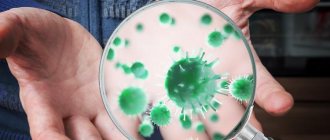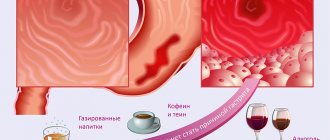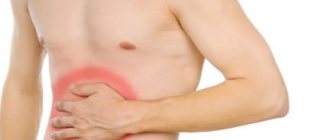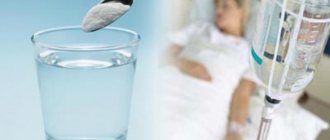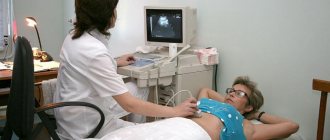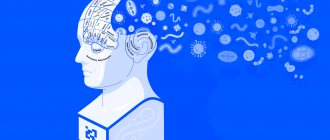Diagnostic methods
Ascariasis usually affects small children, sewage treatment plant workers, agricultural workers, and people who fertilize their gardens with feces.
There are known cases of familial ascariasis, when several generations of one family lived on one rural plot and fertilized their gardens with their own feces. All generations of the family were found to have roundworms.
When questioning the patient, pay attention to his attitude towards the garden, gardening, eating raw, unwashed vegetables, salads, fruits and berries.
During the migration phase, it is quite difficult to diagnose ascariasis. During this phase, a chest x-ray should be performed (level of evidence B) to identify Loeffler's infiltrates. They are formed by larvae, settling in the lung tissue. Sputum examination is also carried out (level of evidence C) to detect parasite larvae, eosinophilic cells, red blood cells, and Charcot-Leyden crystals.
Determining the level of specific antibodies of class G (IgG) in a patient (the so-called “roundworm blood test”) is of some importance. Antibodies begin to be produced before the larvae become sexually mature individuals. That is, the increase in the titer of specific antibodies precedes the separation of eggs by about 3 weeks.
At the same time, a positive ELISA result (IgG for roundworms was detected) is not an indication for the prescription of anthelmintic drugs, as it can occur in two more cases:
- 1The body’s immune memory of ascariasis;
- 2Cross-reaction with other nematode species.
The diagnosis of the intestinal phase of ascariasis is confirmed only by the results of coprooscopic methods (flotation method, thick smear methods according to Kato) - level of evidence A. It must be borne in mind that ascaris eggs in the feces cannot always be detected if individuals of only one sex live in the body.
Thus, the main method for diagnosing ascariasis is stool analysis for helminth eggs.
A complete blood count is also used for diagnosis, which reveals an increase in the number of eosinophils, neutrophils and leukocytes, as well as an increase in the erythrocyte sedimentation rate (level of evidence B).
In practice, other methods of laboratory and instrumental diagnostics are relatively rarely used, which can be divided by level of evidence:
- 1Level of evidence B: examination of areas of affected tissue taken for biopsy, FGDS, plain radiography of the abdominal organs with barium, laparoscopy, CT, MRI.
- 2Level of evidence C: microscopy of lavage fluid taken from the bronchi, microscopy of the contents of the duodenum to detect roundworm eggs and larvae, PCR of feces, enzyme-linked immunosorbent assay and latex agglutination reaction, biochemical blood test, ultrasound of the abdominal organs.
The most likely routes of infection
Ascariasis is not transmitted from person to person by airborne droplets or other contagious means (through a kiss, sneezing, coughing, shaking hands). A prerequisite for infection is the presence of parasite eggs in the soil. Therefore, parasitologists point to the most likely transmission options for ascariasis:
- possible when eating agricultural products (vegetables, fruits, berries, herbs) contaminated with soil particles with remains of human feces;
- neglect of the rules of personal hygiene after working with the soil, on personal plots, during construction, gardening and vegetable gardening;
- swimming in reservoirs, using drinking water from wells and boreholes located near public restrooms, sewer systems and street toilets;
- consumption of any food products of dubious origin - by eating undercooked meat, raw river fish, contaminated with helminth eggs, you can become infected with ascariasis.
Medicines
Photo: gripptips.ru
Infection with worms is dangerous, especially for children, so every family’s medicine cabinet should contain anti-worm medications and pharmaceutical preparations that have the most effective effect. To combat parasites, you can also use folk remedies, such as garlic, pumpkin seeds, fern extract, but only in addition to ready-made medical forms.
Doctors advise that if a parasite infection is detected, not to prescribe treatment on your own, but to consult a doctor for advice. Children are usually prescribed Nemozol.
Medicines for roundworms
Roundworms are the type of worms that are most often found in children. The use of drugs against ascariasis must be treated very carefully, especially if the drugs are prescribed to preschool children.
Drugs against ascariasis:
- Nemozol;
- Vermox;
- Pyrantel;
- McMiror;
- Piperazine.
Treatment of ascariasis with Nemazol
Pharmacological action of Nemozol for ascariasis.
The active component of the drug, albendazole, has an anthelmintic effect. Nemozol is effective against severe helminthic infestations and leads to the death of roundworms in intestinal cells. The drug Nemozol is eliminated from the body within twelve hours. In patients with diseases of the bile ducts, the period for complete withdrawal of Nemozol may increase. The drug Nemozol is effective against adults, larvae and eggs. Almost all nematodes and tissue parasites are sensitive to the action of the main component of the drug Nemozol.
There are contraindications to treatment with drugs for ascariasis, such as Nemozol:
- infectious intestinal diseases;
- viral diseases;
- pregnancy;
- breastfeeding children;
- days of menstruation.
It is recommended to take the drug Nemozol for ascariasis with fatty foods, which promote its good absorption. For children over two years of age and adults, Nemozol is prescribed in a dosage of one tablet (400 mg) or in a suspension of 20 ml. For children under two years of age, the recommended dose of Nemozol is 200 mg or a suspension of 10 ml. If necessary, Nemazol for ascariasis is taken again after three weeks.
Adults and children over 2 years of age should take 1 tablet of Nemozol with a dosage of 400 mg or 20 ml of suspension. Children under 2 years of age should be given 1 tablet with a dosage of 200 mg or 10 ml of suspension. If necessary, after 3 weeks, Nemozol can be repeated at the original dose.
Nemozol for ascariasis is not prescribed to pregnant women, as well as women who are breastfeeding. Treatment with Nemozol is contraindicated for children under one year of age.
Nemozol is also contraindicated for ascariasis in people with retinal damage, cirrhosis and liver failure.
Nemozol should not be prescribed for ascariasis in patients with depressed bone marrow hematopoiesis.
Side effects of Nemozol for ascariasis.
Exceeding the dosage of Nemozol leads to the following problems:
- nausea;
- dizziness;
- vomit;
- headache;
- gastrointestinal disorder.
In some cases, exceeding the dose of Nemozol for ascariasis leads to an increase in temperature, pressure, allergies and itching. Including the wrong dosage of Nemozol for ascariasis can lead to kidney problems and impaired hematopoiesis. There is no antitote for Nemozol poisoning; overdose is treated by gastric lavage and removal of intoxication.
While taking Nemozol for ascariasis, it is not recommended to drive a car, as it is dangerous.
Treatment with Nemozol for ascariasis is carried out only after consultation with a doctor.
Treatment of ascariasis with Vermox
Vermox is one of the most effective drugs for ascariasis, containing the active ingredient Mebendazole. The drug is available in tablet form in a dosage of 100 mg. The drug for ascariasis Vermox should be taken only after consulting a doctor, in a strictly prescribed dosage. Vermox is prescribed for some forms of helminthiasis, including ascariasis.
How to take Vermox correctly
Vermox for ascariasis is taken with water before meals, in the morning and evening, two tablets per day at a dosage of 100 mg, for three days.
Treatment with Vermox is incompatible with alcohol, fatty foods and medications for constipation.
At the end of treatment with Vermox, it is necessary to undergo a control examination for the presence of helminths.
Treatment of children from ascariasis with Vermox
Vermox is intended for children who become infected through contact with animals, in sandboxes, or through contact with other children. Tablets for ascariasis are prescribed by the doctor after testing for worms.
After taking Vermox, the helminths die on the third day and are excreted in the feces.
Before starting treatment, parents should carefully read the instructions for Vermox and act in accordance with them; the exact dose of the drug for ascariasis is prescribed by the doctor, in accordance with the age and weight of the child.
In some cases, treatment of ascariasis is carried out in combination with Vermox and Decaris. These drugs for ascariasis have different components and mechanisms of action on helminths; their overall effect helps to get rid of worms more effectively. Decaris destroys those types of helminths that Vermox cannot cope with.
How often and in what dosage should I give medications for ascariasis so as not to cause side effects? For the first three days of combined treatment with Vermox and Dekaris, it is necessary to monitor the child, see how he sleeps, whether there are any complaints of nausea, dizziness, or convulsions. If symptoms of an overdose of combination treatment appear, you should consult a doctor for advice.
Treatment with Decaris and Vermox for children of preschool and younger age can be carried out every six months. If such a need arises, Vermox plus Dekaris is given four courses per year, but always under the supervision of a pediatrician.
Treatment with Vermox is usually planned; tablets are given in the fall and spring, when the immune system is weakened. For adolescents, treatment is carried out once, with a Vermox tablet in a dosage of 100 mg, after meals. Drink plenty of water.
Treatment of ascariasis with Pyrantel
Treatment of ascariasis with Pyrantel is recommended by doctors all over the world, as this medicine helps to gently get rid of adult worms, their larvae and eggs. Pyrantel for the treatment of ascariasis can be given to children starting from six months of age, after consultation with a pediatrician.
The drug Pirantel has only one contraindication; treatment of ascariasis is contraindicated for people with liver disease.
The course of treatment for ascariasis with Pyrantel can be repeated after three weeks; this scheme is used for simultaneous infection with pinworms and roundworms. In case of weak effectiveness of the drug, the doctor may additionally prescribe treatment for ascariasis with Nemozol.
Use of Macmiror for ascariasis and lamblia
Macmiror is not used for ascariasis, but it is prescribed in combination with other drugs for the treatment of giardiasis and candidiasis.
Advantages of Macmiror:
- does not give side effects;
- easily excreted by the kidneys;
Macmiror acts against ascariasis, salmonellosis and various bacterial infections.
Not recommended for pregnant women and nursing mothers.
Treatment of ascariasis with Vormil and Piperazine
The drug Vormil is used to treat ascariasis, the active substance of the dosage form is albendazole, which destroys helminths at any stage of development. Consumed with fatty foods, in the dosage prescribed by your doctor.
Piperazine, the most commonly prescribed drug for ascariasis, affects the neuromuscular system of parasites, promoting their destruction.
Piperazine for ascariasis is such a mild remedy that it is prescribed even to pregnant women. The drug is contraindicated in diseases of the central nervous system.
Measures to combat ascariasis infection
When infection has already occurred, the best option is to consult a doctor, do the necessary tests and strictly follow the prescribed treatment regimen; but preventive measures are also good ways to protect your body from parasites:
- Wash your hands with soap more often (after visiting the toilet, before eating, after using public transport, etc.) and instill this habit in children.
- Be sure to thoroughly wash fruits and vegetables that do not undergo heat treatment (it is better to pour boiling water over them).
- Drink only bottled or boiled water.
- Do not leave dishes and food uncovered.
- Fight flies in every possible way and prevent their presence in the house.
- For owners of garden plots, do not use feces as fertilizer and regularly clean the soil from it on your plot, as well as equip it with a proper cesspool.
Diagnosis of worms in humans
- What are helminths?
- Factors contributing to helminth infection
- Symptoms and diagnosis of helminthiasis
Diagnosis of worms in humans shows that currently many people suffer from helminthiasis.
Under certain conditions, worms can settle in a person’s body, which will take away his energy and food, drink his blood, destroy his immunity, and it will be very difficult to get rid of them later. As statistics show, such a neighborhood covers a huge number of people living on the planet.
Almost every fourth person is infected with worms or, to put it more beautifully, helminths.
Prevention and treatment
If a child is diagnosed with roundworms, do not panic. It is necessary to treat simultaneously everyone who was in contact with him (as a rule, these are family members). Treatment prescribed by a pediatrician is carried out at home and only in case of massive infestations - in a hospital. Treatment should be comprehensive, taking into account the presence of concomitant diseases and the condition of the body as a whole. A complete protein diet, enzyme preparations (Creon, Mezim, etc.) are recommended; sometimes sorbents and multivitamins are needed.
Considering that helminthic infestations, as well as anthelmintic drugs, contribute to the development of intestinal dysbiosis, it is necessary to restore the intestinal flora with the help of fermented milk products and probiotics. Previously, products of plant origin were mainly used as anthelmintic agents: male fern extract, tansy and wormwood flowers, pumpkin seeds. But at present these drugs are not prescribed, because They are ineffective, have a lot of side effects, are toxic to the child’s body and require long-term use, sometimes up to 2 weeks.
Recently, new drugs have been created that have high anthelmintic activity, safety, and ease of use (once), which is very important for children. Some drugs are effective against different helminths at the same time: mebendazole (Vermox) or nemozol, pyrantel (Helmintox), decaris. You should not be afraid of the toxic effects of drugs. Since modern medicines are almost not absorbed from the intestines into the blood and have few side effects.
After a course of treatment, the signs of chronic intoxication disappear in the little patient, the condition of the skin improves, and the child becomes calmer. This indicates that the presence of chronic intoxication caused by helminthiasis is much more dangerous to health than a course of anthelmintic therapy.
Symptoms
Photo: sorokulya.ru
Symptoms of the disease
Symptoms of ascariasis manifest themselves individually in each person and have their own characteristics depending on the stage of infection. Also, the symptoms of roundworms may be hidden, so the doctor should prescribe laboratory diagnostics.
Ascariasis. Symptoms of the initial stage
In adults in good health, the symptoms of the presence of worms in the body are almost invisible, but the symptoms of ascariasis in children are more clear. This stage is characterized by the appearance of allergies, which occurs due to intoxication of the body with waste products of worms and their larvae, as well as tissue damage after their migration. The initial symptoms last for about a week. Treatment for children and adults at this stage is no different, but different symptoms may occur.
- Many people believe that the main symptom of ascariasis in children is teeth grinding at night. But this is rather a popular belief and this behavioral sign has nothing to do with real symptoms.
- Severe headaches appear periodically for no reason.
- Rapid weight loss or, conversely, weight gain.
- Apathy, fatigue, depression may occur in adults. Children may have frequent, causeless whims and tantrums. This is how waste from adult roundworms affects the nervous system of people.
- Body temperature with ascariasis can rise to 37.5 – 38 C. There is also weakness and body aches.
- When worms migrate, there may be painful sensations in the abdomen, which stop on their own.
- Symptoms of the appearance of worms are strong appetite or its complete absence.
- The appearance of an allergic rash - small red papules, severe itching.
- A cough with clear sputum may appear, which over time develops into bronchitis or pneumonia when the larvae enter the upper respiratory tract.
- The initial stage of symptoms of ascariasis in adults and children can be asymptomatic, or can have a pronounced clinical picture up to the onset of anaphylactic shock.
- With ascariasis, there may be severe itching in the anal area, especially in the evening.
- There may be mucus or fatty masses in the stool of an infected person.
Intestinal stage of the disease
This stage also has the same signs of the presence of worms in both adults and children.
- The body begins to lose weight due to a lack of nutrients and vitamins, which now reach adult roundworms.
- The level of hemoglobin in the blood is steadily decreasing due to a lack of iron and vitamin B12, which is very dangerous for children.
- Increased fatigue, sleep problems, frequent irritability, memory impairment, and increased salivation appear. Children may experience seizures and then developmental delays due to lack of nutrients.
- The mucous membrane of the small intestine becomes inflamed, abdominal pain appears, appetite decreases, problems with stool (either diarrhea or constipation), nausea, bloating, and belching are noted.
- If there are not many helminths in the body, then pronounced symptoms of ascariasis in a person with the second stage may also be absent.
- With severe neglect, various complications can arise as a result of a large accumulation of worms: intestinal obstruction, appendicitis, cholecystitis, jaundice, suffocation.
- If the symptoms of ascariasis are ignored, then chronic diseases such as bronchial asthma, allergic dermatitis and serious problems with the gallbladder may appear.
How dangerous is ascariasis?
Once in the body, helminths not only feed on it, but also suppress the immune system. The state of immunodeficiency makes the child’s body susceptible to bacterial, viral and other infections, contributes to their protracted course and the formation of carrier status, and reduces the effectiveness of preventive vaccinations. Ascariasis when parasitized by a large number of helminths can be complicated by intestinal obstruction, jaundice, pancreatitis (inflammatory process in the pancreas). In some cases, roundworms, ascending the digestive tract, reach the pharynx and penetrate the respiratory tract, which causes asphyxia (severe breathing difficulties due to lack of oxygen). Sometimes roundworms affect the genitourinary system, causing cystitis and vulvitis.



